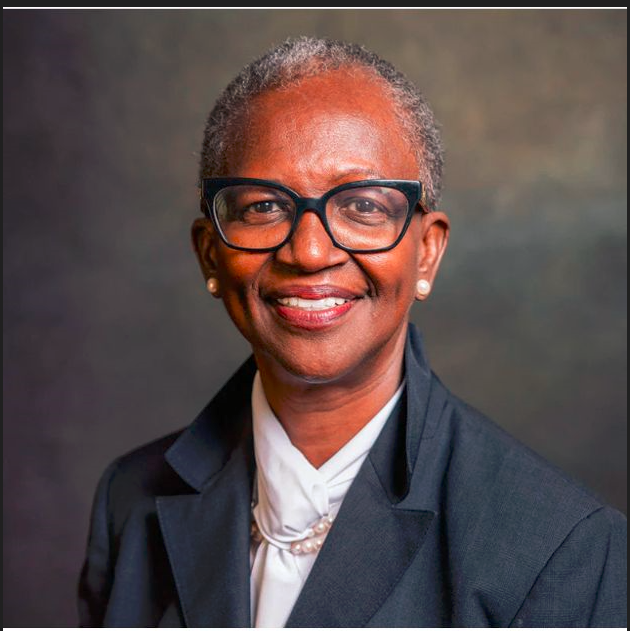Trial Collaboration Redefined: How Leigh E. Johnson Becomes the Lawyer’s Mirror in the Courtroom

Attorneys usually walk into a courtroom focused on their delivery, their argument, and their control over the narrative. But trials are not solitary performances. They are dynamic, unpredictable, and deeply human events. That is why Leigh E. Johnson’s approach to trial collaboration is so compelling. She does not simply advise from a distance. She enters the room. She watches. She listens. And then she reflects back the very essence of the trial in motion.
To collaborate with Johnson is not to receive last-minute tips. It is to gain a mirror, a clear, attentive presence who captures both what is being said and how it is being received. Her role is not corrective. It is generative. She helps lawyers recognize their blind spots, refine their delivery, and connect more deeply with jurors in real time.
From Strategy to Symbiosis
Most trial consultants operate outside the flow of trial. They prepare lawyers in advance, conduct mock trials, or offer feedback based on focus groups. Johnson does all of that, but she also steps into the rhythm of the courtroom itself. Her process is intimate. It is rooted in attention and emotional precision.
She works closely with lawyers during voir dire, opening statements, witness examination, and closing arguments. She is present to observe how jurors respond to tone, body language, and emotional pacing. Then she provides insight that helps lawyers adjust—not just what they say, but how they say it.
This form of collaboration is not built on hierarchy. Johnson is not there to override strategy. She is there to reflect its effectiveness. In that sense, she becomes a mirror—not a passive observer, but a partner in the art of advocacy.
The Lawyer’s Emotional Barometer
One of Johnson’s unique strengths is her ability to attune to emotional undercurrents in the courtroom. Lawyers are often immersed in their case theory. They are watching the judge, managing exhibits, and questioning witnesses. What they rarely have is a dedicated observer whose focus is entirely on the emotional and interpersonal dynamics at play.
Johnson watches the jury’s micro-expressions. She notes shifts in attention. She pays close attention to how the lawyer’s energy rises or dips across different phases of the trial. All of this becomes actionable data. Not statistical, but human.
For example, she might notice that a lawyer’s voice tightens when speaking about liability, which subtly undermines confidence. Or that a juror leans back whenever a particular witness takes the stand. These small cues, when gathered and interpreted, can make the difference between connection and confusion.
Real-Time Adjustments with Lasting Impact
Trial is not a fixed performance. It evolves with each moment. Witnesses may surprise. Opposing counsel may pivot. Judges may redirect. Johnson helps lawyers respond fluidly, not reactively. Her feedback is immediate but thoughtful. It is not about scrapping a strategy. It is about shaping it in harmony with the moment.
She encourages adjustments in tone, posture, and language that bring lawyers back into alignment with their core story. This is not about presentation style. It is about presence. Johnson reminds lawyers of who they are in the middle of high-stakes tension. That reminder restores clarity.
Lawyers working with her describe the experience as grounding. When the trial becomes disorienting or emotionally overwhelming, Johnson serves as a compass. She helps them return to the narrative spine of their case. And just as important, she helps them return to themselves.
Walking the Line Between Support and Leadership
Johnson’s presence in the courtroom is never intrusive. She knows when to step forward and when to hold back. She has a deep respect for the lawyer’s role and the responsibility that comes with it. At the same time, she is not afraid to speak truthfully. If a story thread feels disjointed or if a juror appears disengaged, she names it.
This delicate balance between support and leadership defines her collaborative style. She is not there to impress the court. She is there to serve the process. That requires humility and confidence in equal measure.
Her trial collaboration is especially vital in emotionally charged cases—capital defense, wrongful death, or cases involving betrayal or moral injury. In such trials, it is easy for lawyers to carry the emotional weight too heavily. Johnson helps them distribute that weight in ways that serve both the advocate and the client.
A Mirror for the Advocate’s Voice
Johnson does not impose a new voice on the lawyer. She helps them rediscover the one they already possess. Many lawyers, under pressure, shift into overly formal or defensive tones. They begin to sound like someone they think they are supposed to be.
Through her presence and feedback, Johnson brings lawyers back to a voice that feels congruent and real. She encourages vulnerability where appropriate, restraint where needed, and courage throughout. This return to authenticity strengthens trust with the jury and sharpens the delivery of the case story.
When a lawyer’s voice reflects who they truly are, jurors lean in. They sense conviction that cannot be faked. Johnson’s gift lies in helping lawyers find and sustain that voice throughout the unpredictable journey of trial.
Beyond the Verdict
Johnson’s approach to trial collaboration is not just about winning. It is about integrity. It is about delivering a case that reflects the full truth of what happened, not only through evidence but through emotional clarity.
She understands that trials are not only legal events. They are human dramas filled with uncertainty, memory, and meaning. To walk into that space without a mirror is to risk disconnection. With Johnson present, the lawyer gains not only a second set of eyes, but a second center of emotional gravity.
The impact of this work often outlasts the trial. Lawyers who collaborate with Johnson carry her lessons into future cases. They become more emotionally fluent, more attentive to presence, and more courageous in how they tell their stories.
Trial collaboration is not about scripting every moment. It is about being ready to meet each moment with clarity, empathy, and precision. Leigh E. Johnson offers that readiness through a form of partnership that is rare in the legal world.
She becomes the lawyer’s mirror, not to critique or correct, but to illuminate. She reflects what is already present, waiting to be seen more clearly. In doing so, she helps lawyers not only tell their case story but live it with the honesty and strength it deserves.


